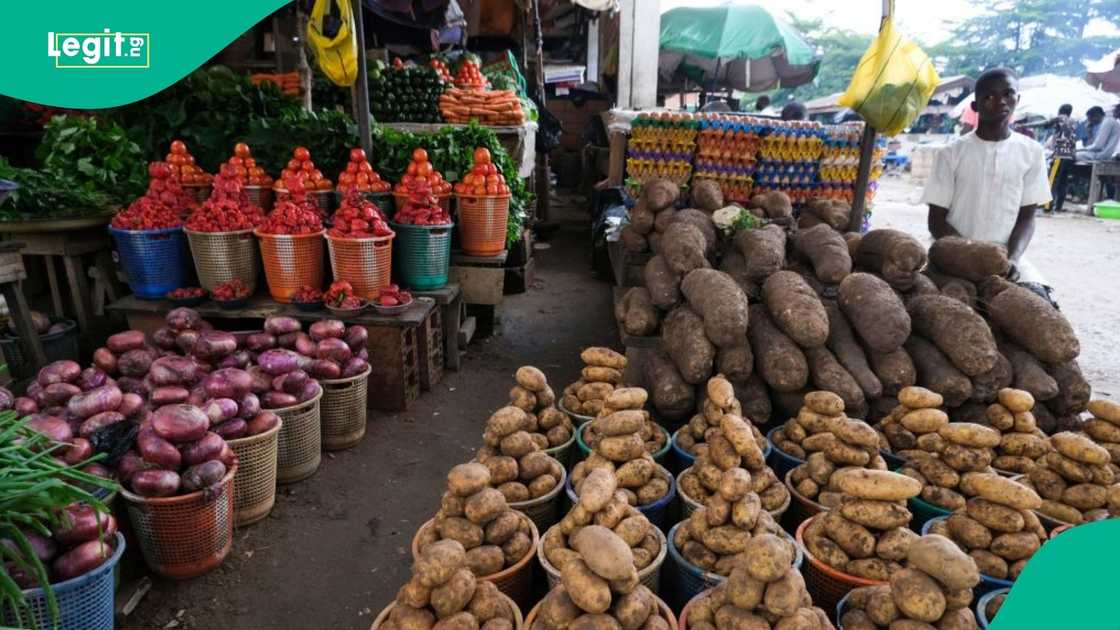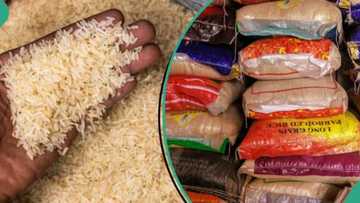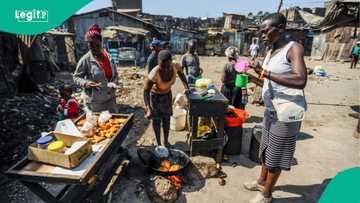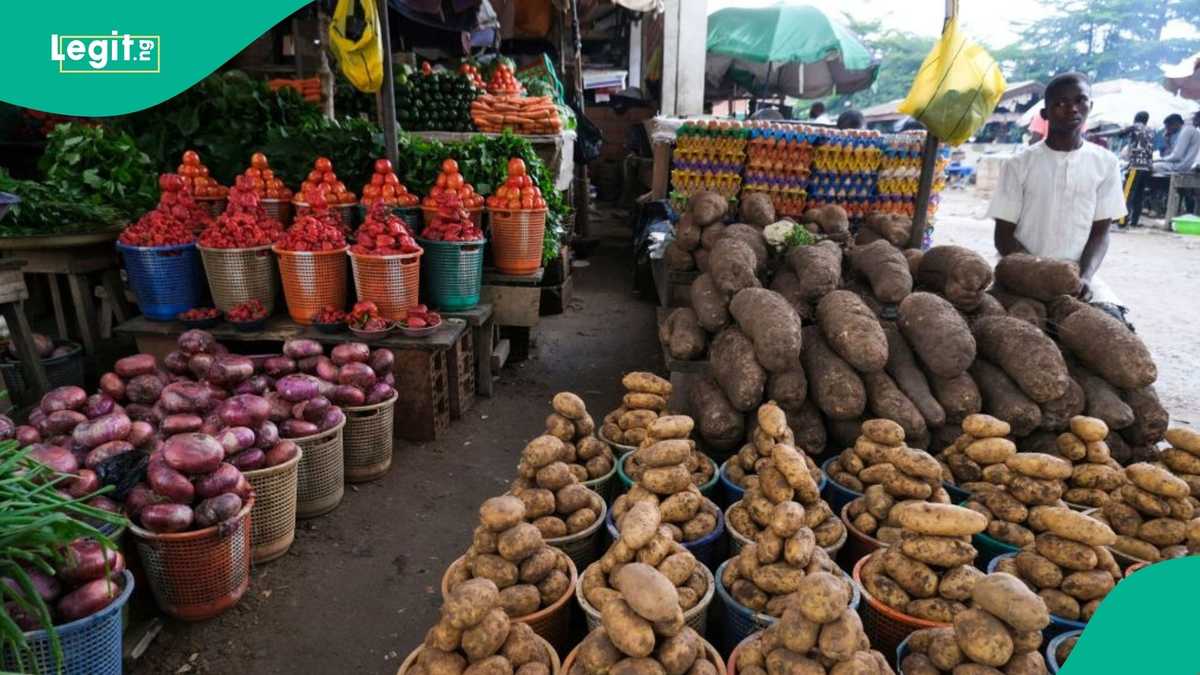In 2024, Nigeria had inflation figures that broke all records going back to the 1980s, and food inflation was the key driverExperts say that factors like a rise in fuel costs and poor farm yields, among others drove food inflationThey called on the Nigerian government to improve cargo transportation infrastructure and lower fuel prices
Henzodaily.ng journalist Ruth Okwumbu-Imafidon has over a decade of experience and a deep understanding of Nigeria’s corporate sector and emerging trends in the fintech space.
The year 2024 came with strong economic headwinds, and for most Nigerians, the narrative can hardly be separated from food inflation. The year started with food inflation of 35.41%, already 11.10% higher than the 24.32% food inflation in January 2024.
While this figure was already high enough to have Nigerians lamenting, it was the lowest for the year. By November 2024, the national average food inflation was 39.93%, with more than half the 36 states already having their food inflation over 40%.
Read also
Tinubu sends message to Nigerians on economic reforms, naira expected performance in 2025
Sokoto state, for instance, had its food inflation at 51%, making it the most expensive state to feed.
Worse still, there were complaints that the National Bureau of Statistics (NBS) was not being entirely factual with its figures. Financial analyst Dr. Musa Bayero had this to say to NBS about the report.
“Perhaps if you go back and redo your data collection and computations, Nigeria may end up with over 70% inflation”.
 Experts identify the key drivers of food inflation in 2024.
Experts identify the key drivers of food inflation in 2024.
Photo Credit: Kola Sulaimon
Source: Getty Images
Several reports show that most families could no longer afford to feed themselves like they used to in 2022, and for those that could, their food budget doubled, consuming more of their income.
Henzodaily.ng spoke to some analysts to find out what drove food inflation in 2024, and here are some of the inflation drivers they identified.
The elephant in the room – fuel prices
Data from the NBS shows that a litre of fuel cost about N668 in January 2024, but by the last quarter of the year, it was selling above N1,100. Some states even recorded pump prices as high as N1,400.

Read also
New year’s day: Full text of President Tinubu’s 2025 message to Nigerians
This directly translated into higher transportation and logistics costs to move food items from where they are grown to where they are consumed. And if anyone would bear these additional costs, it had to be the consumers.
According to Mr. Ikemesit Effiong, Head of Research/Partner at SBM Intelligence, the poor road infrastructure also resulted in higher logistics costs.
In an interview with Henzodaily.ng, Effiong said;
“The roads are bad, and we don’t use our internal waterways nearly as much as we should for an economy of our size. Rail infrastructure which, historically, used to account for the movement of a lot of goods from the hinterlands to the coasts, has largely been under-invested in. And even when it is, the priority has been for commuters, not for transporting goods. All of these have inflated the cost of logistics and transportation for foodstuffs and even FMCGs”.

Read also
Nigeria loses N93.72 billion to Ponzi schemes in 2 years
Mechanized farming became more expensive
For the longest time, mechanized farming has been touted as the more cost-effective way of farming on a large scale, and farmers in rural areas have been encouraged to collectively get these machines to do some of the hard work on the farms.
Interestingly, the machines are fuelled with petrol or diesel and seeing as the cost of petrol went from N190 in May 2023 to N1,100 by October 2024, one can only imagine the financial shocks the farmers had to absorb.
Samuel Oyekanmi, Research & Insights Associate at Norrenberger, told Henzodaily.ng that the increased cost of mechanized farming drove some of the local farming clusters to return to their subsistence farming.
He said:
“The high cost of petrol and diesel has made mechanized farming a very expensive method of farming.”
He added that for those who could afford to continue, the cost also had to be passed on to the consumers.

Read also
“No More N80k/50kg”: Sellers quote rice at new price as cost Jollof doubles in 2024
Insecurity kept farmers away from their farms
For years, Nigeria has battled mounting security challenges especially in most of the food-growing states. According to President Tinubu, these challenges arose from inherited security challenges in the northwest region.
Many farmers have lost lives and limbs in attacks that met them on their farms. Mr Effiong spoke on how these reduce food production.
He said:
“As we have seen from our research at SBM, many people are not going to farms and overall crop production for both food crops and cash crops have flatlined over the last half-decade because of security. This is also causing significant internal migration within Nigeria, with people moving from the farming communities where they have lived all their lives, to nearby urban towns where they feel a little safer.”
Poor farm yields
Another less popular driver of food inflation in 2024 was low farm yields caused by inferior seedlings, climate change impact, flooding, and other associated factors.

Read also
More than 50% of Nigerians are multidimensionally poor – World Bank report
Effiong said:
“My conversations with people in the agric value chain show that they appear to be getting inferior seedling compares to what they used to have, and this is impacting the level of yields they can get out of the same efforts”
Foreign exchange rates
The naira was, without a doubt, the worst-hit currency in 2024. Thanks to the government’s devaluation, it depreciated by over 40%. Experts say this was a key driver of inflation in the year.
For a heavily import-dependent country, it is a no-brainer that Nigeria was going to take the toll of this depreciation. NBS data showed that Nigeria’s food import was at its highest in Q1 2024, with imports worth N920.54 billion, almost double the N471.39 billion recorded in Q1, 2023.
So, while the FX rate is pushing up the prices of imported foods, poor logistics and insecurity are pushing up the cost of locally produced foods.

Read also
Finally, MTN, Airtel, others set to increase call, data tariffs in early 2025
Simple laws of economics show that inflation is the result of low supply, high demand, and higher prices, and this was what hit Nigerians in 2024.
Countries with highest food inflation
Henzodaily.ng recently reported that Nigeria had been ranked among the top 10 countries with the highest food inflation in the world.
The World Bank report observed that domestic food price inflation remained strong, and Nigeria had outpaced inflation in 46% of the 167 nations surveyed.
Nigeria was number eight on the list, with a 7% year-on-year rise in food inflation.
PAY ATTENTION: Сheck out news that is picked exactly for YOU ➡️ find the “Recommended for you” block on the home page and enjoy!
Source: Henzodaily.ng
